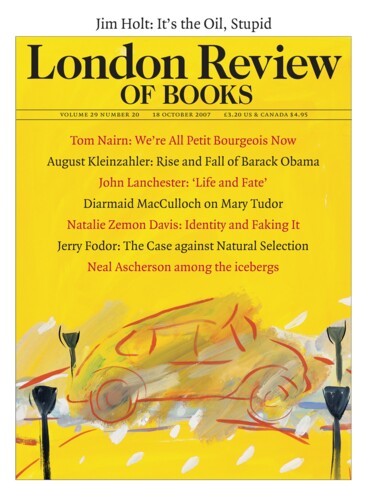Why Pigs Don’t Have Wings: The Case against Natural Selection
Jerry Fodor, 18 October 2007
An appreciable number of perfectly reasonable biologists are coming to think that the theory of natural selection can no longer be taken for granted. This is, so far, mostly straws in the wind; but it’s not out of the question that a scientific revolution – no less than a major revision of evolutionary theory – is in the offing. Unlike the story about our minds being anachronistic adaptations, this new twist doesn’t seem to have been widely noticed outside professional circles. The ironic upshot is that at a time when the theory of natural selection has become an article of pop culture, it is faced with what may be the most serious challenge it has had so far. Darwinists have been known to say that adaptationism is the best idea that anybody has ever had. It would be a good joke if the best idea that anybody has ever had turned out not to be true.





